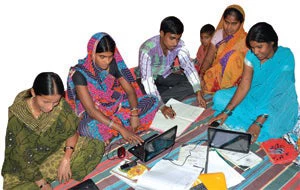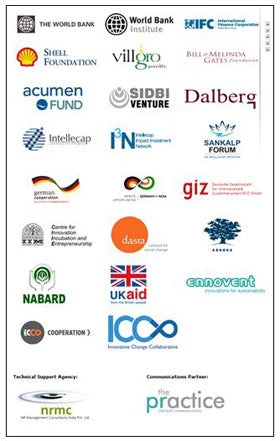 Social Entrepreneurs: the Government of Bihar wants to partner with you!
Social Entrepreneurs: the Government of Bihar wants to partner with you!
Traditionally, both government and the private sector have struggled to reach remote and poverty stricken parts of India, especially eastern states such as Bihar. Even social entrepreneurs and civil society organizations struggle to apply their innovations because of poor reach and lack of absorption,. However, Jeevika, a program jointly supported by Government of Bihar and the World Bank, has built a community-based institutional platform that can reach millions of poor households in Bihar. It is now offering a unique opportunity to social innovators to capitalize on the platform as well as access to financial capital providing enterprises with a chance for a leap.
Bihar has more than 100 million inhabitants and is India’s second poorest state. Ninety percent of the population lives in rural areas and the state has lagged behind in reducing poverty. Poor households have struggled for reasons such as lack of economic opportunity, inability to transact with financial institutions. Jeevika, a rural livelihoods program has been working with community institutions since 2007 and has built an institutional platform by mobilizing 1 million women into self-help groups (SHGs) and higher-level federations. Eventually, the project plans to mobilize 15 million households and reach most poor households in the state over the next 5 years. Social mobilization has also been accompanied with focused efforts to improve both the demand and supply side of credit enabling a pro-poor investment climate in the state. The total financial turnover of households, which have accessed credit multiple times, has been INR 5.25 billion(~$95 million) or INR 13,000(~$230) per household. The financial inclusion initiatives have also been accompanied with various innovative livelihoods initiatives.
Social mobilization has also been accompanied with focused efforts to improve both the demand and supply side of credit enabling a pro-poor investment climate in the state. The total financial turnover of households, which have accessed credit multiple times, has been INR 5.25 billion(~$95 million) or INR 13,000(~$230) per household. The financial inclusion initiatives have also been accompanied with various innovative livelihoods initiatives.
In 2007, Jeevika launched a unique market-place called ‘Bihar Innovation Forum’(BIF) with the objective of identifying private sector and non-profit organizatons with new ideas and high social impact but which are unable to scale-up due to lack of resources or poor access to public institutions. BIF’s intention was to find solutions to improve rural livelihoods beyond established channels through an open, transparent, and competitive process.
Social entrepreneurs were asked to send proposals with their ideas and its applications on ground. The long-listed proposals were each vetted through a rigorous process and on-site visits. Eventually, 25 innovations were featured in the forum and given public recognition. Some of these awardees were also given an opportunity to scale-up their innovations through the community institutions.
Encouraged by the success of first innovation forum, Jeevika recently launched the second edition of the forum in collaboration with Bihar State Innovation Council and is now looking to tap social entrepreneurs beyond the state. The government has rolled out a major outreach plan with roadshows across the country to call for proposals from public, social entrepreneurs and civil society organizations in 8 livelihood themes: Agriculture, Livestock, Financial Services, Rural Energy, ICT Based Solutions, Skill Development & Non-Farm Sector, Improved Access to Entitlements and, Better Access to Services.
Winners of the forum will be provided direct financial support, mentorship and a chance to scale-up their innovations using the institutional platform. In addition, these entrepreneurs will get access to a network of other partners like impact investors, foundations, incubation agencies and donor agencies. It has also forged partnerships with the major players in the social entrepreneurship space such as Gates Foundation, Acumen Fund, ennovent, Ashoka Foundation, Intellecap Impact Investment Network and others.
If you believe that you can transform the lives of the rural poor in Bihar and your innovations can lead to sustainable and scalable rural livelihood solutions, then the Innovation Forum is the right platform for you. If your ambitions to scale are being held back by lack of access to rural poor or local governments’ support, Apply Now!




Join the Conversation